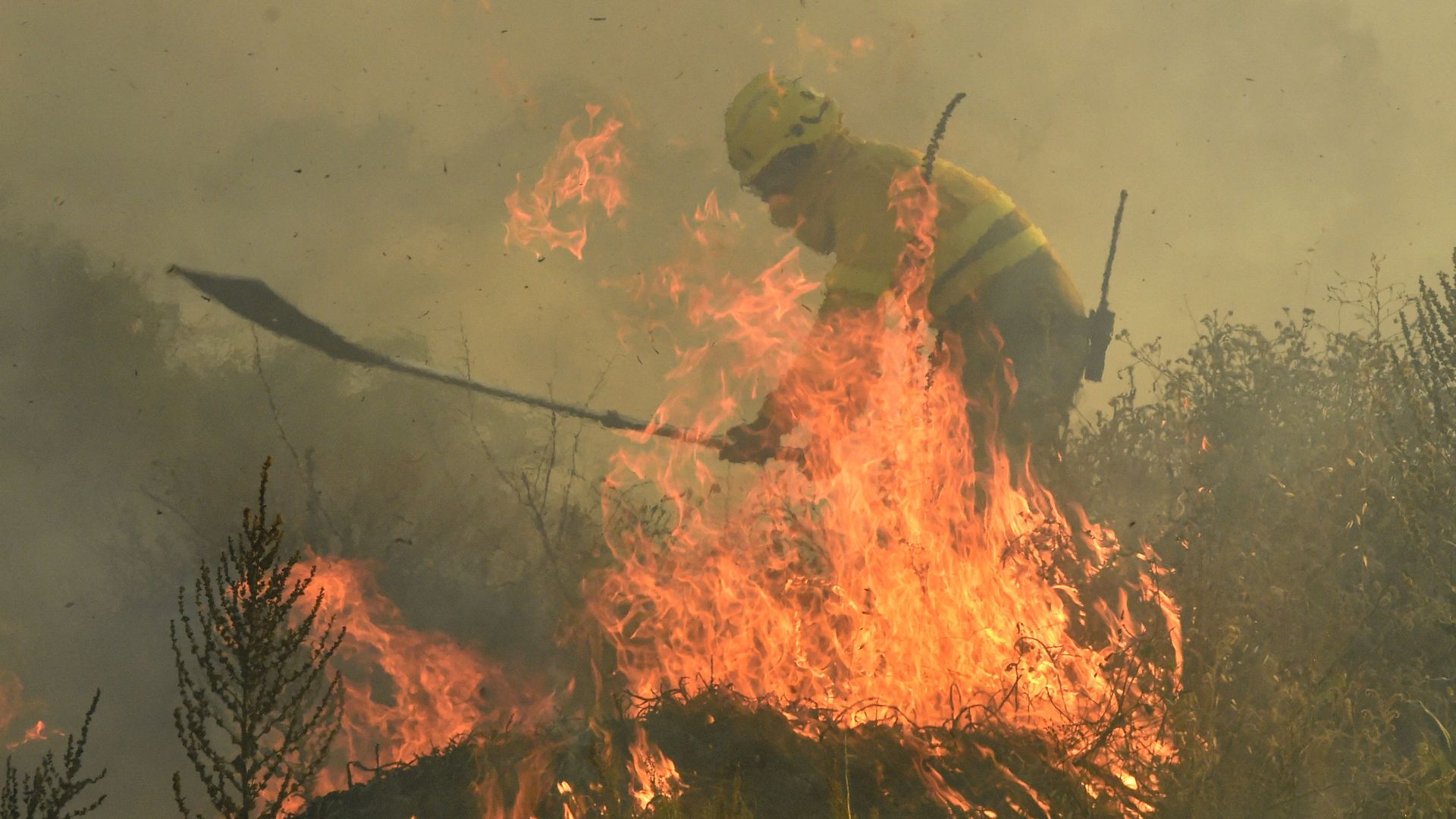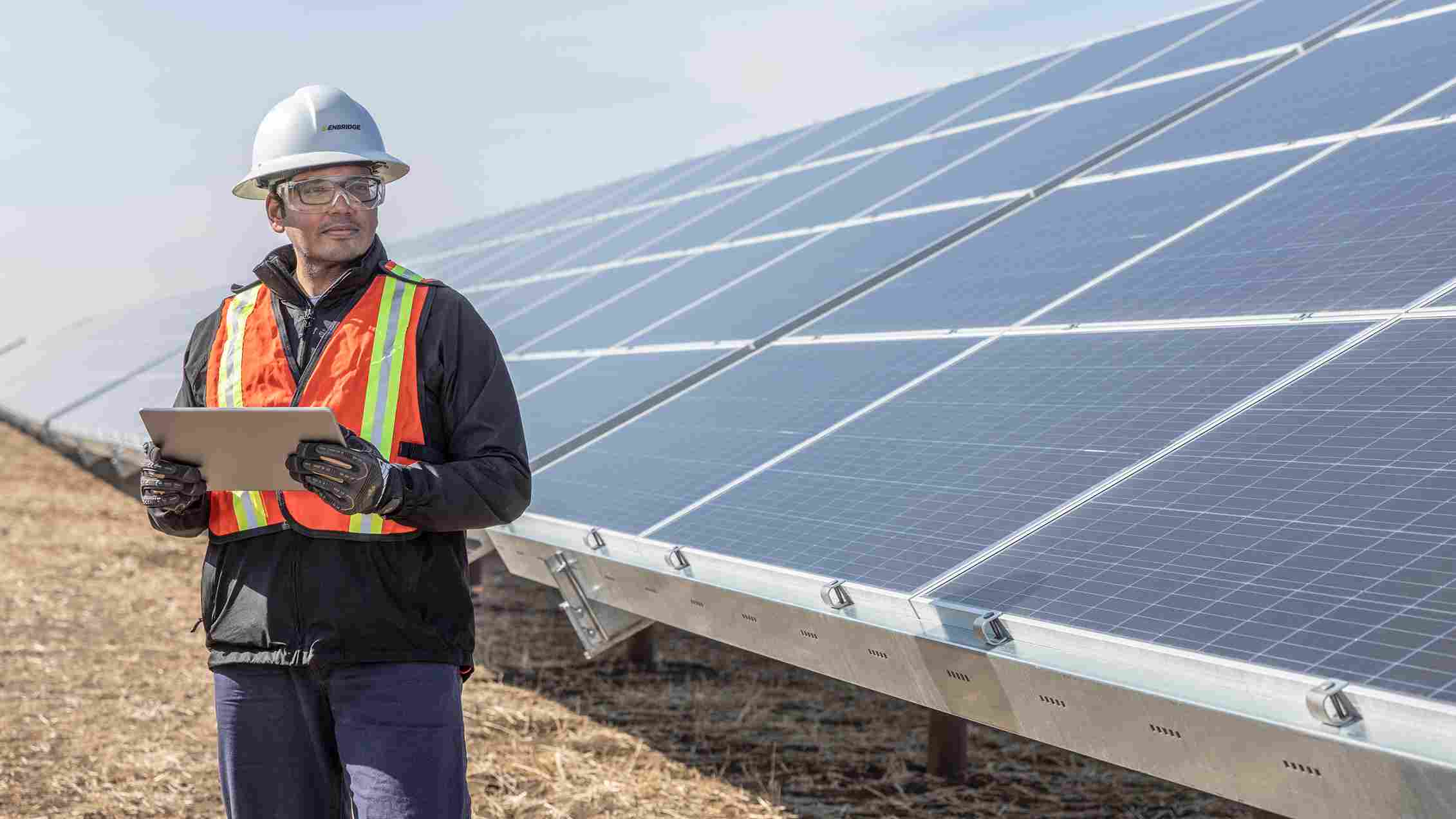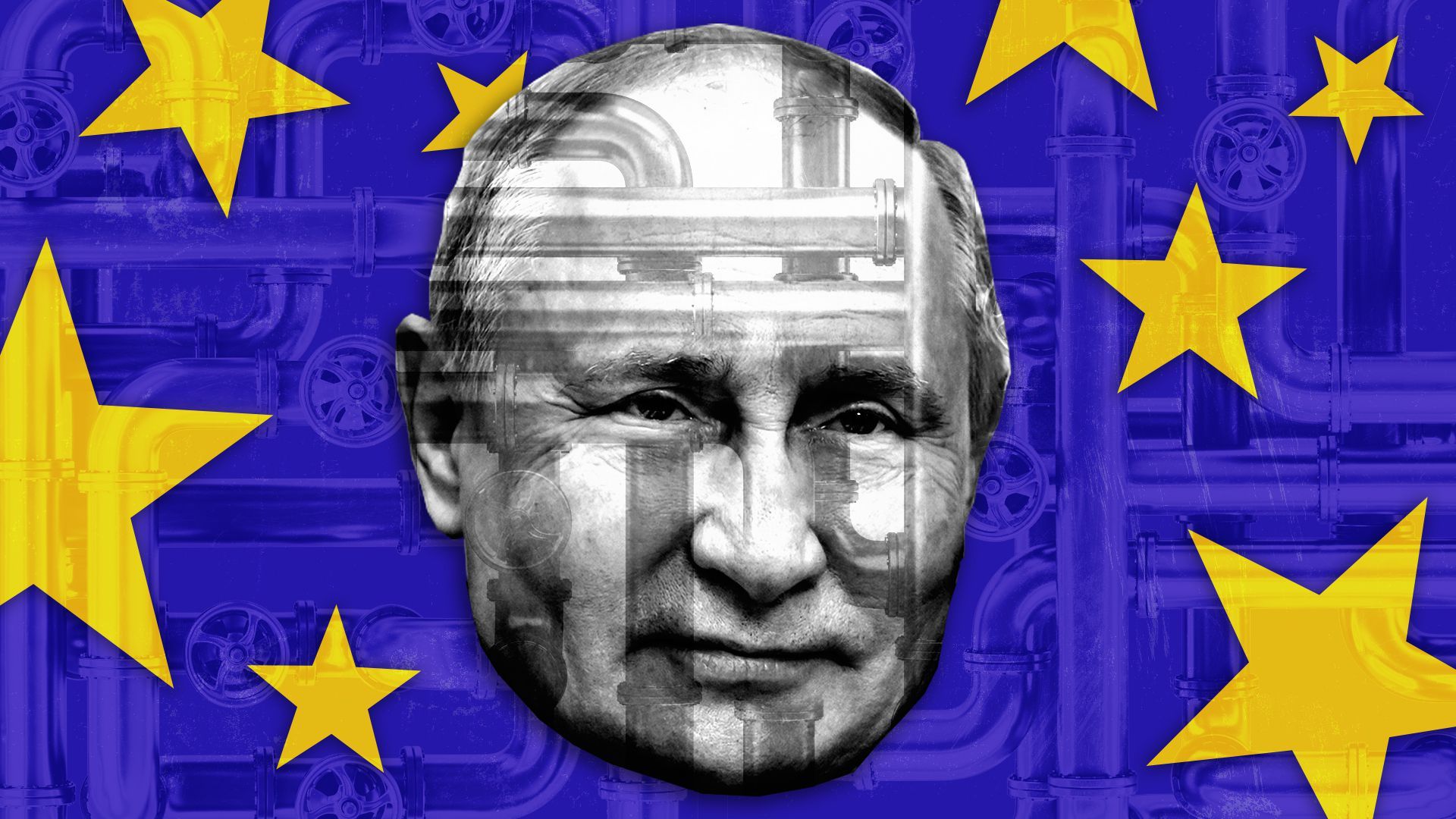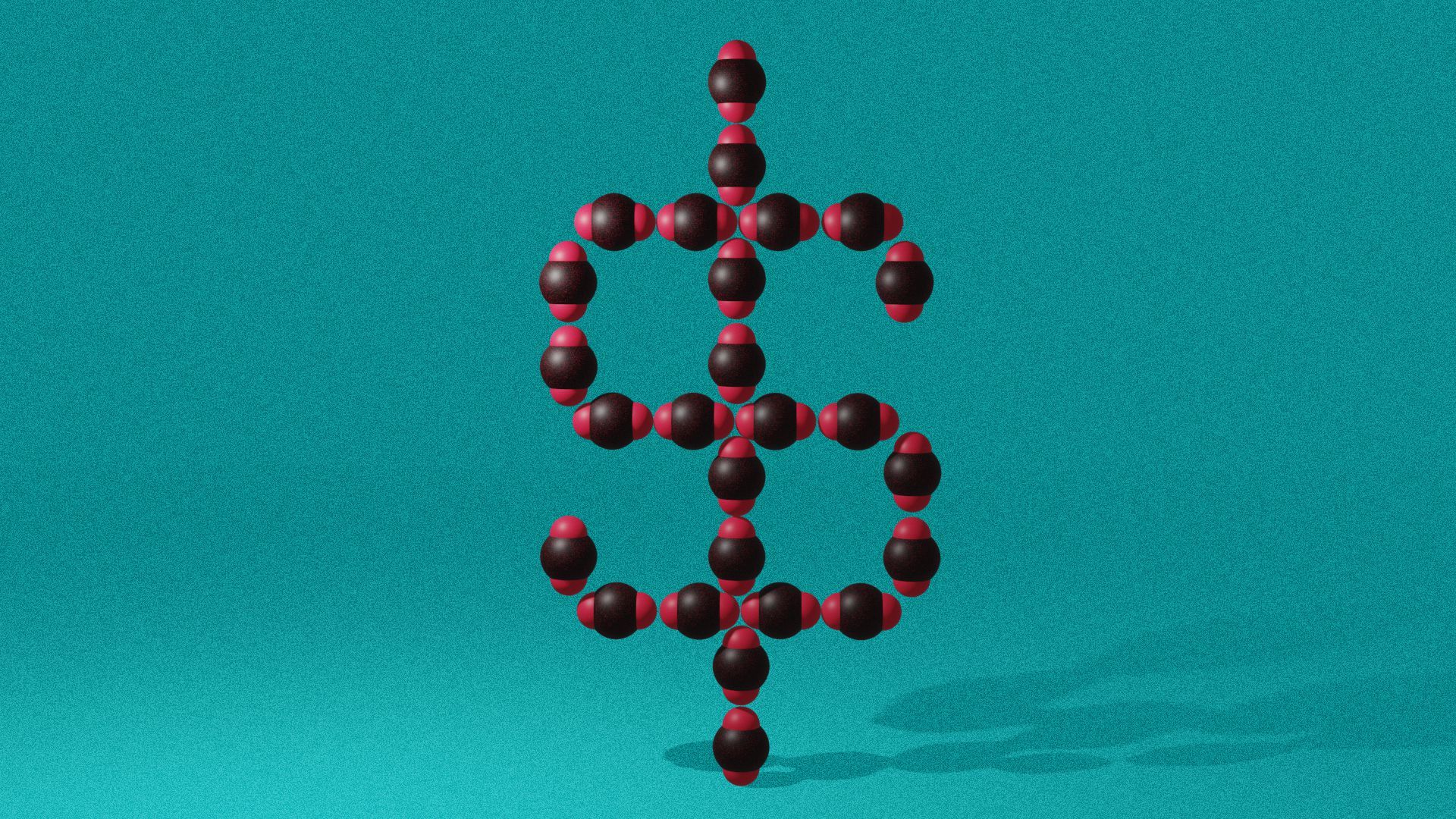| | | | | | | Presented By Enbridge | | | | Axios Generate | | By Ben Geman and Andrew Freedman · Jul 19, 2022 | | 🍩 Good morning. Today's newsletter, edited by Mickey Meece, has a Smart Brevity count of 1,189 words, 4.5 minutes. 🚨 President Biden may declare a "climate emergency" as soon as this week to free up more executive powers, the Washington Post reports. 🎶 This week marks 50 years since the underrated Rod Stewart released the album "Never a Dull Moment," so a deep cut is today's intro tune... | | | | | | 1 big thing: Scientists were right and it's crushing them |  | | | A firefighter near Zamora, northwest Spain, on July 18. Photo: Miguel Riopa/AFP via Getty Images | | | | The heat wave wreaking havoc on Western Europe signals the arrival of a new era: Extreme heat events that would have been virtually impossible without human-caused global warming are now a deadly reality, Andrew writes. Why it matters: This extreme heat has left some climate scientists shaken and dismayed at how prescient their warnings were, yet how little the global agenda has changed. Driving the news: Temperatures rose above 104°F (40°C) in the U.K. today for the first time on record. Weather records there go back further in time than in nearly any other country, to the 1600s. Context: Climate scientists have long pointed to the tie between increasing global average temperatures due to the burning of fossil fuels for energy, and an increased risk of extreme heat events. What they're saying: "My scientific mind understands that this summer will be one of the coolest for the rest of our lifetimes unless we decide to treat the climate crisis like the emergency that it is," said Andrea Dutton, a climate researcher at the University of Wisconsin-Madison, via email. - Michael Wehner, who studies heat extremes at the Lawrence Berkeley National Laboratory, said the early research connecting heat wave severity to greenhouse gas emissions is now more than two decades old.
- "To my great disappointment, we were right. In fact, if anything, those early projections of extreme temperatures were overly conservative," he told Axios via email.
Meanwhile, the extreme heat in Europe, along with heat waves seen in Asia and North America this summer, need not foster hopelessness, says NASA climate scientist Kate Marvel. - "It's hard for me to hold two truths simultaneously in my mind, but I have to," she told Axios via email from the United Kingdom.
- "The first truth is that we live in a nightmare. This is exactly what climate models projected was going to happen: intensifying extreme weather, severe public health consequences, and incredibly frustrating Congressional inaction. There is no reasonable scenario where the warming stops at 1.2°C, so it's definitely going to get worse," she said.
- "The second truth is that we live in a world where things have changed beyond my wildest dreams. Clean energy is dirt cheap compared to fossil fuels, electric cars will soon be widely available, and state and local governments are proposing (and passing!) policies to cut emissions," she said.
The bottom line: "The future is going to be worse. But, if we refuse to give up, it's going to be better, too," Marvel said. Read more. |     | | | | | | Bonus: Where there is drought, there are wildfires |  Data: Copernicus Climate Change Service (C3S) Climate Data Store (CDS); Chart: Erin Davis/Axios Visuals The wildfires that have exploded in size in Portugal, France and Spain during this heat wave are also tied to a severe drought in the region. - Parts of Europe are in "extreme" to "very extreme" fire danger, per the Copernicus Emergency Management Service, Andrew writes.
Why it matters: A drying of Mediterranean Europe, from Spain to Italy and Greece, is a predicted consequence of human-caused climate change. In some areas, the drought is also enabling air temperatures to climb higher. What's next: The heat wave poses a particular challenge to firefighters and water managers, since it will only worsen the drought conditions. |     | | | | | | 2. The billions without air conditioning |  Data: IEA; Chart: Erin Davis/Axios Visuals One reason the European heat wave is so dangerous is the same reason that growing heat extremes threaten so many elsewhere: Air conditioning is pretty concentrated globally, Ben writes. Threat level: The New York Times reports that only an estimated 5% of homes in the U.K. have AC. More broadly, AC is relatively uncommon in Europe. The Washington Post reports that roughly 75% of people in France have no air conditioning. The big picture: The worsening extremes in Europe come as global warming brings fatal dangers to already hot regions of the planet where AC is also uncommon, such as India. Zoom in: Via a 2021 International Energy Agency report (based on 2020 data)... AC ownership is over 90% in the U.S. and Japan, but under 5% in sub-Saharan Africa and under 10% in India, "even though the number of cooling degree days (the metric used to assess the need for cooling services) is twice as high in those countries." |     | | | | | | A message from Enbridge | | At Enbridge, our focus is on tomorrow | | |  | | | | We're investing in low-carbon solutions and modernizing our systems to advance the energy transition. Our latest sustainability report shares our progress in meeting our ESG goals and integrating sustainability across our businesses. Explore the report. | | | | | | 3. Sizing up Putin's gas leverage |  | | | Photo illustration: Shoshana Gordon/Axios. Photo: Alexei Nikolsky\TASS via Getty Images | | | | The specter of larger and prolonged cuts in Russian gas flows to Europe is more credible thanks to Russia's cash haul during the commodity price surge, the International Energy Agency warns, Ben writes. Threat level: In IEA's new memo on ways to cut EU gas demand and find alternative energy supplies, IEA Fatih Birol warns that it's "unwise to exclude the possibility that Russia could decide to forgo the revenue it gets from exporting gas to Europe in order to gain political leverage." - That's because it has "already capitalized" on the energy crisis. Since the invasion of Ukraine started, Russia's revenue from oil and gas exports to Europe "has doubled compared with the average of recent years — to $95 billion."
- "[T]he increase in Russia's oil and gas export revenues in just the last five months is almost three times what it typically makes from exporting gas to Europe over an entire winter."
What we're watching: Russian gas flows to Europe have already fallen a lot this year. Now a key question is whether Russia this week restarts a key pipeline to Germany. "The European Commission is preparing new emergency powers to force EU countries to reduce their gas consumption if the bloc faces devastating supply shortages in the months ahead," Politico reports. Go deeper: Europe Fears Widespread Economic Fallout if Russian Gas Outage Drags On (WSJ) |     | | | | | | 4. The mainstreaming of carbon removal |  | | | Illustration: Brendan Lynch/Axios | | | | A new trade group is advocating for early-stage companies seeking to commercialize nascent tech for pulling CO2 from the atmosphere and making sure it doesn't return, Ben writes. Why it matters: The Carbon Business Council's launch today signals the growing prominence of efforts to scale-up carbon removal as a tool against global warming. Driving the news: It has over 40 members with an array of technologies for removing CO2, keeping it geologically trapped or embedded in useful products like cement, or creating marketplaces for removal transactions. - Executive director Ben Rubin tells Axios that one goal is "bringing startups to the policy table."
- The group is registering to lobby, and Rubin argues there's potential bipartisan backing for greater federal support.
The big picture: Investors and policymakers are increasingly exploring a basket of budding methods for removing previously emitted CO2. - One is direct air capture, which is getting lots of attention and investment these days. But it also includes other concepts, such as ways of speeding CO2 uptake in oceans, rock formations and soils.
Yes, but: Even under optimistic scenarios for scaling this tech, analyses of how to keep global warming in check see emissions-cutting — not removal — doing by far the heaviest lifting. Read the whole story. |     | | | | | | 5. Quote of the day | | "To really get to 30, 40, 50% EVs being sold, you have to appeal to people that are in that $30,000 to $35,000 price range." — General Motors CEO Mary Barra in an AP interviewWhy it matters: The interview explores GM's strategy for taking on Tesla and reaching its electric vehicle sales targets. |     | | | | | | A message from Enbridge | | At Enbridge, our focus is on tomorrow | | |  | | | | We're investing in low-carbon solutions and modernizing our systems to advance the energy transition. Our latest sustainability report shares our progress in meeting our ESG goals and integrating sustainability across our businesses. Explore the report. | | | | 📬 Did a friend send you this newsletter? Welcome, please sign up. Thanks for reading and we'll see you back here tomorrow. |  | | Why stop here? Let's go Pro. | | | | | | Axios thanks our partners for supporting our newsletters. If you're interested in advertising, learn more here.
Sponsorship has no influence on editorial content. Axios, 3100 Clarendon Blvd, Arlington VA 22201 | | | You received this email because you signed up for newsletters from Axios.
Change your preferences or unsubscribe here. | | | Was this email forwarded to you?
Sign up now to get Axios in your inbox. | | | | Follow Axios on social media:    | | | | | |
Post a Comment
0Comments